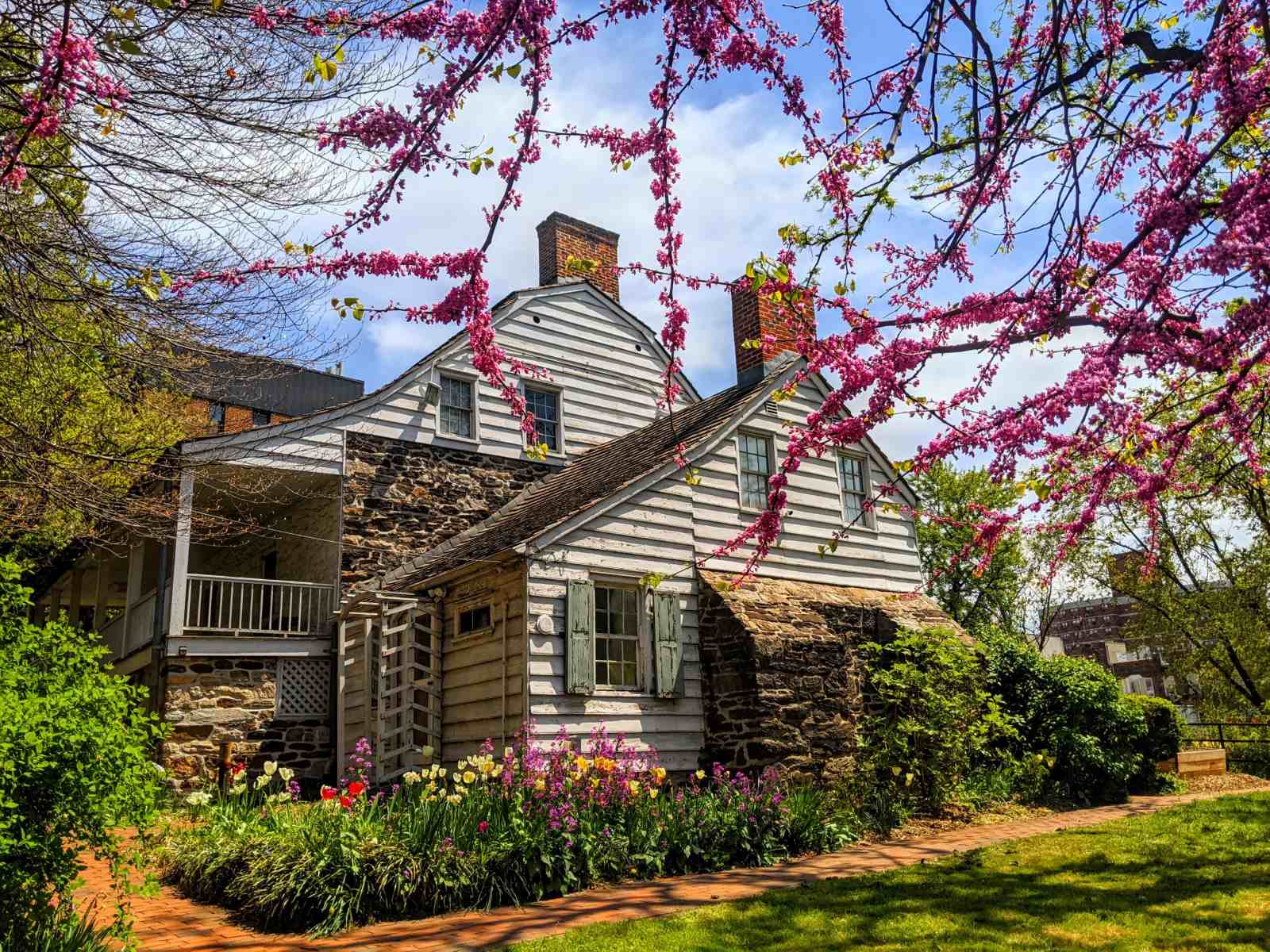
Ever wondered about the hidden gems of New York City? One such treasure is the Dyckman Farmhouse, a historic site nestled in the bustling neighborhood of Inwood, Manhattan. This charming farmhouse, built in 1784, stands as the last remaining Dutch colonial farmhouse in Manhattan. It offers a unique glimpse into the city's rural past, long before skyscrapers dominated the skyline. Visitors can explore its quaint rooms, lush gardens, and learn about the Dyckman family's life during the 18th century. Whether you're a history buff or just curious about NYC's rich heritage, the Dyckman Farmhouse provides a fascinating journey back in time.
Key Takeaways:
- Step back in time at the Dyckman Farmhouse, Manhattan's oldest remaining farmhouse, and discover its Dutch Colonial architecture, historic grounds, and preservation efforts. It's a living history lesson for all to enjoy!
- Explore the Dyckman Farmhouse's rich history and unique features, from hidden rooms to ghost stories, and plan a visit to experience educational programs, cultural events, and a glimpse into New York's past.
Dyckman Farmhouse: A Glimpse into New York's Past
The Dyckman Farmhouse is a hidden gem in New York City, offering a unique window into the city's rich history. This historic house has many fascinating stories to tell. Let's dive into some intriguing facts about this remarkable landmark.
Historical Significance
The Dyckman Farmhouse holds a special place in New York's history. Here are some key points that highlight its importance.
- Oldest Remaining Farmhouse: The Dyckman Farmhouse is the oldest remaining farmhouse in Manhattan, built around 1784.
- Dutch Colonial Architecture: It showcases Dutch Colonial architecture, a style brought by early settlers from the Netherlands.
- Revolutionary War Connection: The house was built by William Dyckman after the original family home was destroyed during the Revolutionary War.
- Family Legacy: The Dyckman family lived on the property for nearly a century, contributing to the area's development.
- Historic Landmark: In 1967, it was designated a New York City Landmark, recognizing its historical and architectural significance.
Architectural Features
The farmhouse's architecture offers a glimpse into the past. Let's explore some of its unique features.
- Gambrel Roof: The house features a gambrel roof, a hallmark of Dutch Colonial design.
- Fieldstone Foundation: Its sturdy fieldstone foundation has withstood the test of time.
- Original Woodwork: Much of the original woodwork inside the house remains intact, showcasing craftsmanship from the 18th century.
- Restored Interiors: The interiors have been carefully restored to reflect the period when the Dyckman family lived there.
- Period Furnishings: The farmhouse is furnished with period-appropriate pieces, giving visitors a sense of life in the 18th century.
The Farmhouse Grounds
The grounds of the Dyckman Farmhouse are just as fascinating as the building itself. Here's what you can find outside.
- Herb Garden: A recreated herb garden showcases plants that would have been used for cooking and medicine in the 18th century.
- Orchard: The farmhouse once had an orchard, a common feature of farms in that era.
- Barn: A reconstructed barn on the property gives insight into the agricultural practices of the time.
- Stone Walls: Original stone walls still surround parts of the property, marking the boundaries of the old farm.
- Educational Programs: The grounds host educational programs and workshops, teaching visitors about colonial farming and gardening.
Preservation Efforts
Preserving a historic site like the Dyckman Farmhouse requires ongoing effort. Here are some key points about its preservation.
- Museum Status: The farmhouse operates as a museum, managed by the Dyckman Farmhouse Museum Alliance.
- Community Support: Local community support has been crucial in maintaining and preserving the farmhouse.
- Restoration Projects: Various restoration projects have been undertaken to maintain the house's structural integrity and historical accuracy.
- Grant Funding: Preservation efforts are often funded by grants from historical societies and government programs.
- Volunteer Involvement: Volunteers play a significant role in the farmhouse's upkeep and educational programs.
Cultural Impact
The Dyckman Farmhouse has had a lasting impact on the local community and beyond. Here are some ways it has influenced culture.
- Educational Resource: The farmhouse serves as an educational resource for schools and universities, offering a tangible connection to history.
- Cultural Events: It hosts cultural events, including reenactments, lectures, and workshops, bringing history to life for visitors.
- Film Location: The farmhouse has been used as a filming location for movies and TV shows set in historical periods.
- Art Exhibits: It occasionally hosts art exhibits that explore themes related to its history and architecture.
- Community Hub: The farmhouse acts as a community hub, fostering a sense of local pride and historical awareness.
Interesting Tidbits
Beyond its historical and cultural significance, the Dyckman Farmhouse has some lesser-known facts that add to its charm.
- Hidden Rooms: The house has hidden rooms and compartments, used for storage and possibly as hiding spots during the Revolutionary War.
- Ghost Stories: Some visitors and staff have reported ghostly encounters, adding an element of mystery to the farmhouse.
- Time Capsule: A time capsule was buried on the property during one of its restoration projects, to be opened by future generations.
- Celebrity Visits: Over the years, the farmhouse has hosted visits from celebrities and dignitaries interested in its history.
- Unique Artifacts: The museum's collection includes unique artifacts, such as original family documents and period clothing.
Visiting the Dyckman Farmhouse
Planning a visit to the Dyckman Farmhouse? Here are some tips and things to know.
- Location: The farmhouse is located at 4881 Broadway, at the corner of 204th Street in the Inwood neighborhood of Manhattan.
- Hours of Operation: It is open to the public from Wednesday to Saturday, with varying hours depending on the season.
- Admission Fees: Admission is free, but donations are encouraged to support preservation efforts.
- Guided Tours: Guided tours are available, offering in-depth insights into the farmhouse's history and architecture.
- Special Events: Check the farmhouse's website for information on special events and programs that might be happening during your visit.
Final Glimpse at Dyckman Farmhouse
Dyckman Farmhouse stands as a testament to New York City's rich history. Built in 1784, this historic site offers a unique window into the past. From its Dutch Colonial architecture to its well-preserved artifacts, the farmhouse tells the story of early American life. Visitors can explore the gardens, exhibits, and educational programs that bring history to life. The farmhouse also serves as a community hub, hosting events and workshops that engage people of all ages. Whether you're a history buff or just curious, Dyckman Farmhouse provides a fascinating glimpse into a bygone era. So next time you're in New York, make sure to stop by and experience this historic gem for yourself.
Frequently Asked Questions
Was this page helpful?
Our commitment to delivering trustworthy and engaging content is at the heart of what we do. Each fact on our site is contributed by real users like you, bringing a wealth of diverse insights and information. To ensure the highest standards of accuracy and reliability, our dedicated editors meticulously review each submission. This process guarantees that the facts we share are not only fascinating but also credible. Trust in our commitment to quality and authenticity as you explore and learn with us.


